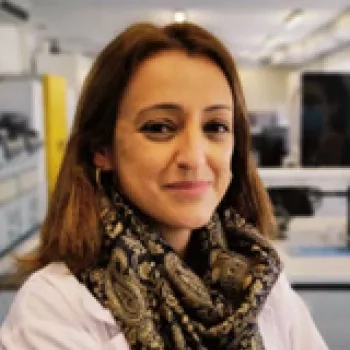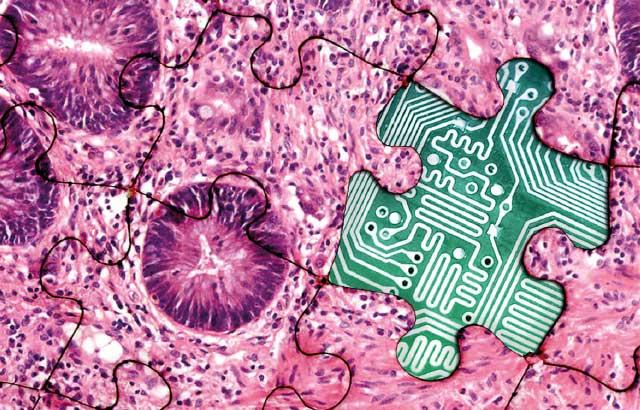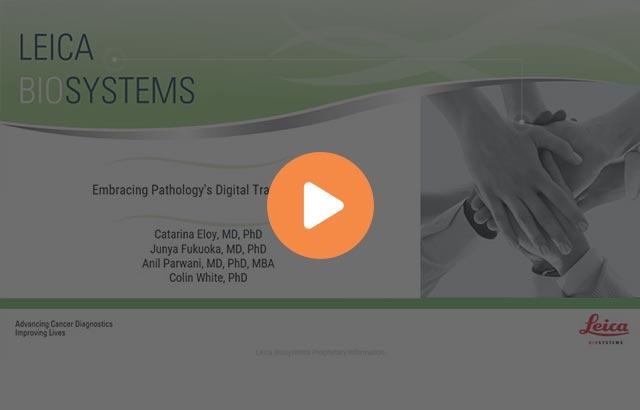
Pathology’s Modern-Day Water Cooler: Digital Pathology Connections Community


Among the downsides of the pandemic-driven shift to remote working is the loss of water cooler conversation – a work tradition that extends across nations.
Historically, a water cooler conversation is a day-to-day activity where staff members come together (often around a water cooler) and have face-to-face casual conversations on work-related topics. Water cooler talk has been a great way to bring colleagues together to connect in an otherwise formal work environment. However, even though the worst of the pandemic is over, this event has largely come to a standstill.
Pathology needs such dialogue as never before. We are at an incredible moment of opportunity, driven by technological advances such as digital pathology and computational pathology. We are also full of challenges, including a current shortage of pathologists worldwide, fewer medical students entering the specialty, and uncertainty about how artificial intelligence will influence our work and our role within dynamic health systems. More than ever, we need to collaborate and help each other think through these large and complex topics.
Fortunately, there is a new community called Digital Pathology Connections (DPC) that is quickly becoming pathology’s modern-day water cooler. DPC is a virtual global community launched in October 2022 by pathologists for pathologists to provide a hub for educational content and discussion of timely topics. In just a few months, DPC has attracted more than 300 members worldwide. This robust response underscores pathologists’ interest in a non-commercial forum where we can freely exchange ideas, share real-world experiences and learn from each other’s successes and failures.
Certainly, a topic as important as digital pathology necessitates accredited working groups, rigorous study, peer-reviewed scientific papers, and detailed policy guidelines. We must maintain the thoughtfulness, rigor and discipline that are hallmarks of our profession. That noted, we would be equally remiss if we did not acknowledge we should complement scientific and clinical analysis with lived experience, evidence and anecdotes.
As Charter Members of DPC, we can attest that learning from peers in an informal setting resonates in a meaningful way that differs from learning gleaned by an expert talking from a podium.
For example, an early poll of DPC members found the most important barrier to digital adoption is financial, which may seem evident to some but was surprising to many. Further, we were intrigued to see how the poll results catalyzed a fascinating (virtual) conversation about cost/benefit analysis, with institutions farther along in their digital journey sharing advice with those earlier in their journey regarding validating ROI models, quantitative outcomes measures, and the importance of conveying ‘soft’ benefits such as enhanced quality and improved patient management.
A separate poll revealed members’ interest in learning how institutions handle remote working as we collectively emerge from the acute phase of the COVID-19 pandemic. Resources were shared, including free tools – creating a living curriculum that will be refined over time by DPC members. This type of co-creation for professional education is unprecedented in pathology and is tremendously exciting.
For those of us who have been at the forefront of digital transformation, we don't want to keep it just for ourselves. We want to share with our colleagues and show how we overcame our difficulties, our problems and extol the benefits. It is in this spirit we invite you to join DPC by registering on our LinkedIn hub. In the coming months, fellow Charter Members Sylvia Asa, MD, PhD (USA/Canada) and Giovanni Lujan, MD, PhD (USA) will host discussions on the impact of digital pathology on careers and preparing residents for Computational Pathology, respectively. We encourage you to explore the existing discussion threads and engage in upcoming conversations. Share your perspective, post comments, ask questions, suggest topics, and connect with other members of the Community. Join the conversation here!
발표자 소개

Dr. Catarina Eloy is the Head of the Pathology Laboratory of IPATIMUP/ Researcher at i3S/ Affiliated Professor of Medical Faculty of The University of Porto. She is also the former President of the European Society for Digital and Integrative Pathology and Vice-president of the Portuguese Society of Anatomic Pathology.
Dr. Eloy received her MD in 2003 from the Medical Faculty of The University of Porto with a specialization in Pathology
Dr. Eloy has been a researcher since 2006 at the cancer signaling & metabolism of i3S/Ipatimup and received a Ph.D. in Thyroid cancer in 2012 by the Medical Faculty of The University of Porto.
Dr. Eloy has 70 publications and three academic and scientific awards/distinctions.

Dr. Bethany Williams is a Specialty Doctor at Leeds Teaching Hospitals NHS Trust and the University of Leeds, and the Lead for Training, Validation and PPI at the National Pathology Imaging Co-Operative in the United Kingdom. She has published extensively in the fields of digital pathology patient safety, evidence based digital pathology training and validation and effective digital deployment. Her body of research earned her the Pathological Society’s medal for research impact, and she is regularly invited to speak at international conferences as an authority on the digital pathology evidence base, practical deployment and patient safety.
Related Content
라이카 바이오시스템즈 Knowledge Pathway 콘텐츠는 에서 이용할 수 있는 라이카 바이오시스템즈 웹사이트 이용 약관의 적용을 받습니다. 법적고지. 라이카 바이오시스템즈 웨비나, 교육 프레젠테이션 및 관련 자료는 특별 주제 관련 일반 정보를 제공하지만 의료, 규정 또는 법률 상담으로 제공되지 않으며 해석되어서는 안 됩니다. 관점과 의견은 발표자/저자의 개인 관점과 의견이며 라이카 바이오시스템즈, 그 직원 또는 대행사의 관점이나 의견을 나타내거나 반영하지 않습니다. 제3자 자원 또는 콘텐츠에 대한 액세스를 제공하는 콘텐츠에 포함된 모든 링크는 오직 편의를 위해 제공됩니다.
모든 제품 사용에 다양한 제품 및 장치의 제품 정보 가이드, 부속 문서 및 작동 설명서를 참조해야 합니다.
Copyright © 2025 Leica Biosystems division of Leica Microsystems, Inc. and its Leica Biosystems affiliates. All rights reserved. LEICA and the Leica Logo are registered trademarks of Leica Microsystems IR GmbH.


